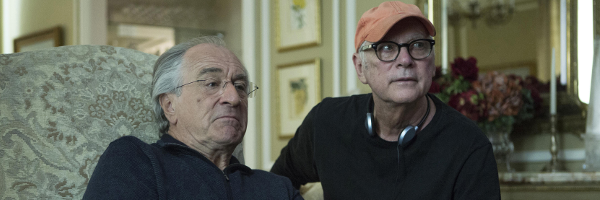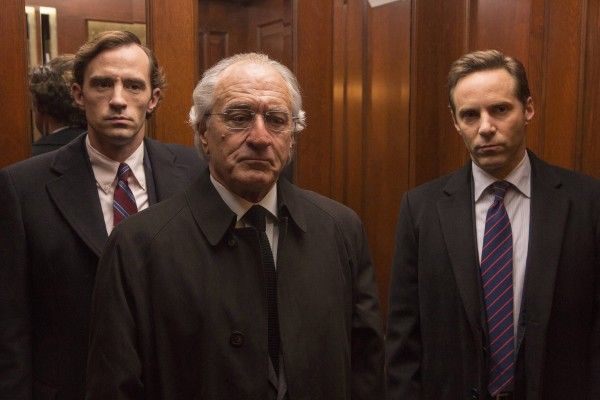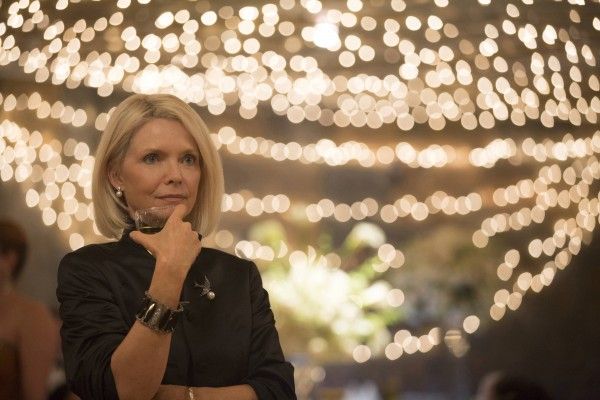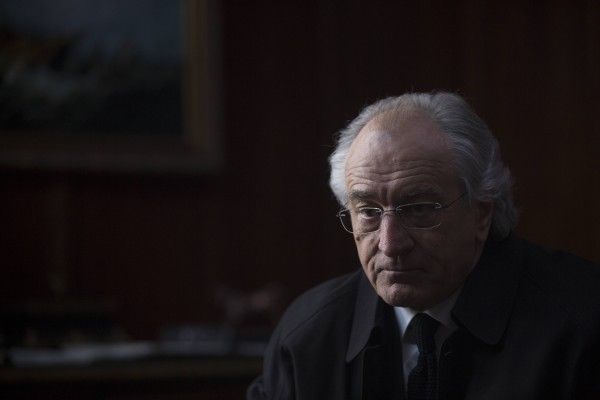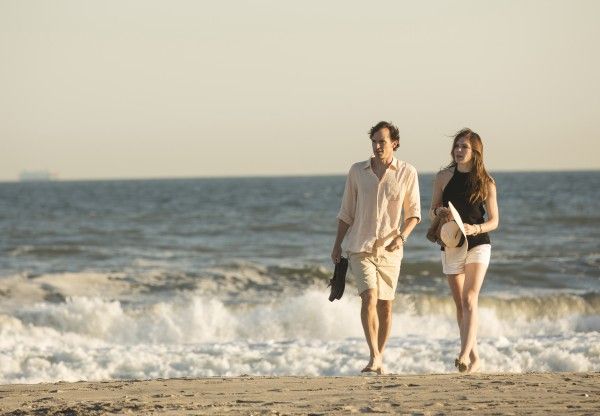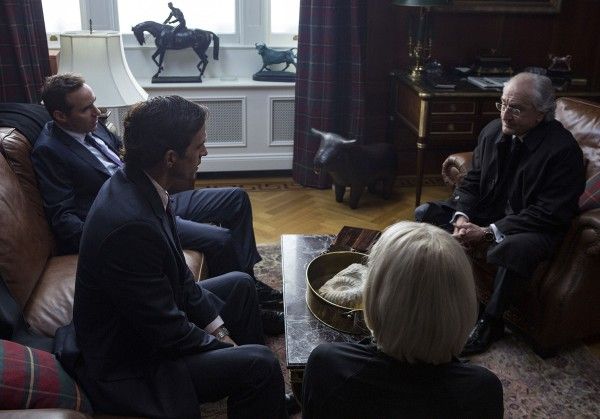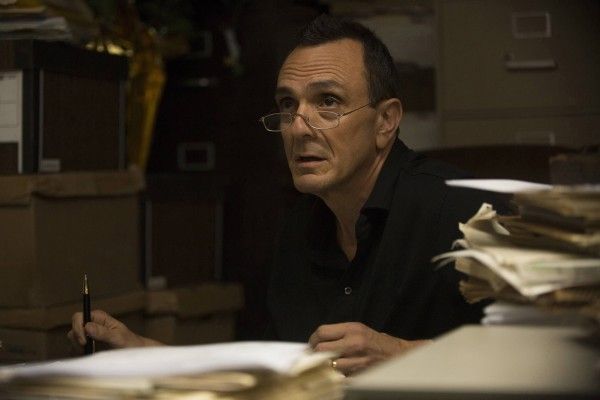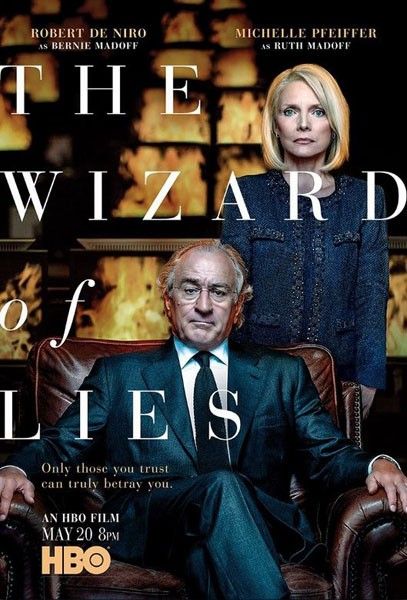Directed by Barry Levinson and based on the book written by Diana B. Henriques, HBO Films’ The Wizard of Lies examines Bernie Madoff’s Ponzi scheme, and the deception, lies and cover-up that came, as a result. While Bernie (Robert De Niro) made headlines around the world, upon his arrest for what is perhaps the largest financial fraud in U.S. history, his wife (Michelle Pfeiffer) and sons (Alessandro Nivola, Nathan Darrow) were placed directly into a harsh, unrelenting and unforgiving spotlight that permanently tore their family apart.
During this 1-on-1 phone interview with Collider, Academy Award-winning director Barry Levinson talked about how he came to direct this project for HBO, working on it with his son, why Robert De Niro and Michelle Pfeiffer were perfect for this roles, how author Diana Henriques came to be in the film, and just what kind of person it takes to carry out a crime of this magnitude. He also talked about how the filmmaking business and changed and evolved, and why it’s such an exciting time for storytellers.
Collider: How did you come to direct this project? Did HBO specifically come to you with this?
BARRY LEVINSON: Eventually, they did. What happened, I believe, was that Bob De Niro’s company had purchased the rights to the book, The Wizard of Lies. They were developing it for a few years, and it didn’t come together. And then, they sent it over to me, I looked at it and we had a meeting. I laid out what I believed the direction should be, and they said, “Well, that’s interesting.” So, we agreed to meet in a week or so, and then I discussed it with my son, Sam, and he put together 20 pages. I sent that over to Bob and Jane Rosenthal, and we had the meeting and they thought it looked good, so I told them that my son wrote it. Bob has known Sam since he was 10 years old, and he said, “All right, good.” That’s how we proceeded.
Had you and your son worked together before?
LEVINSON: We worked on something when he was younger, but that didn’t come about. We’re always talking about ideas for things and exchanging stuff. He wrote and directed a film (Another Happy Day), a few years ago, and this seemed like something that I thought he could do. I thought my emphasis would be on a father and sons, and the wife, and out of that, we would tell the story, rather than just starting with the big story. Those relationships were very key to me, and I thought it would be a good opportunity to work together.
Before your son started on his own path, as a writer and director, did he come to you for any advice?
LEVINSON: No, we’ve just talked about it, over the years. We’d always sit and watch movies together, and talk about this or that. He has a great encyclopedia mind for it and he’s always been interested in it, so it was great to be able to do something together. We have a lot of the same ideas for how to approach things.
Is it disheartening, at all, to know that more people will likely see this movie on HBO than would have, if it were a theatrical release, or are you okay with that, as long as you’re happy with the quality of the work?
LEVINSON: The reality of it is that, in the end, everything is seen on television, no matter what. There are people seeing Gone with the Wind because of television. For me, as a kid, one of my first jobs was working at a television station before they had computers, and you would have to roll to commercial breaks for The Late Show and The Late Late Show. That’s where I saw Citizen Kane and Casablanca. I saw everything on television. So, I think there’s a point where we have to stop making the distinction between theatrical and television. In the new generation, that doesn’t matter. It is what it is, wherever it is. The idea of going to the theater and sitting together with a shared experience, I happen to like and I think it’s great, but people don’t live their lives that way anymore. They see it however they see it. The important thing is to be able to tell the stories that you want to tell. Right now, what’s happened is that television – cable, streaming, network and whatever – works in a different place than theatrical. Theatrical is much more the spectacular, in a sense. It’s the tentpole movies and the action type of films. And HBO finds its place. That’s the landscape you have to look at. For me, if you can tell the story, then tell the story, wherever it’s going to show up.
Bernie Madoff’s crime taught me what a Ponzi scheme is. I know he’s not the first one to pull one off, but it was the first time I had been made aware of what that is because he did it on such a huge scale. I also remember going through those thoughts of, “There’s no way his wife didn’t know. There’s no way his sons and his brother didn’t know.” Before you made this film, what were your thoughts about Bernie Madoff, his crime and his victims?
LEVINSON: That a guy scammed, stole and conned people out of millions of dollars. That’s what I knew. I didn’t know much about the wife or the sons. You would make the assumption that family would know. That would be your first thought because they’re working in the company, so how could they not know. But then, when you read into it, there were separate elements at work and they were doing different things. And Ruth was 13 years old when she met Bernie. Basically, her whole life has been with this one man. She never developed on her own, and then got married. This became the man. He controlled everything. So, the fact that she would be excluded from so much information made perfect sense to me. There is all of this documentation and all of these FBI reports that seem quite credible.
Along with being the director on this, you were also an executive producer, as was your leading man, Robert De Niro. How involved was he, once the production started?
LEVINSON: At that point, he basically turns it over. It’s the job of the director to shape it and bring all of the other elements together. He certainly seems comfortable enough with me, over the years, and he understands the nature of the process. It’s not like he’s over your shoulder, all the time, in any regard. Casting Diana Henriques, who’s the writer that we use as the person that interviews Bernie, was Bob’s idea. We met her and we both felt that it could work out quite well. He’s got good instincts. It’s a great working relationship, in that regard.
What was it like to have actors like Robert De Niro and Michelle Pfeiffer playing off of each other to bring these characters to life?
LEVINSON: They’re perfect for the roles. I can’t say enough about Michelle’s performance. She just seems like Ruth Madoff to me. I saw interviews that Ruth Madoff did, several years before, and I thought Michelle just stepped into that. It’s not like people are going to be comparing because it’s not like Ruth Madoff was so famous that we know she didn’t talk that way. That’s not really the point.
Since it’s a question that’s asked in the film, do you think that Bernie Madoff is a sociopath, or is it not that simple?
LEVINSON: I don’t think we wanted to answer that question. That’s just a judgment that we can make. He asks the question because he doesn’t know. He can’t see it. How do you explain that behavior? Try as you might, you can’t give justification to it. It’s impossible. We’re telling a story, not about a man with a gun, but about a man who literally destroyed the lives of so many people. He didn’t have a gun, but he did it and, apparently, seemed to have no moral compass, in that way.
You’ve been in this business for a long time, and it’s changed so much, over the years. What have been the most surprising changes, that you never could have foreseen, when you started out, as a filmmaker?
LEVINSON: I think the changes are enormous, in terms of the business. There was a time that, if you had a good story, you could go to a studio and sell the story. It didn’t have to be about any kind of thing. If it was a really interesting story, a studio would be interested. Now, you could have a really great story, but for the most part, they’re not going to buy it because it’s not something that has sequel potential or branding. That’s what they look at. That changes it, so you can’t do a simple story. If you want to do a movie about human beings, you generally don’t go to a studio. That’s the simplification of it, but that’s basically it. If you take Rain Man, that’s a simple journey across the country about two brothers and one is autistic, but it is just a humanistic piece, so they would never make that movie, in a million years. Even though it made half a billion dollars back in the ‘80s, and it only cost $22 million to make, they would not make a film like that. That’s a huge change in the business. The environment isn’t what it once was.
Are there technological changes that have been exciting to explore?
LEVINSON: There are a number of things, including everything that’s happening in terms of television and streaming video, where you can watch all of the episodes, at one time. You can spend the whole weekend binge-watching. That’s brand new, and it’s really interesting and worthwhile. Sometimes you can tell a much larger canvas piece, and that’s good. I would hesitate to emphasis what’s happened with the studios as a negative thing because the positive side is that it’s opened the doors for all kinds of storytelling to take place. That’s the good news for young people coming up today. There are so many different outlets that I think it’s a great and exciting time.
The Wizard of Lies airs on HBO on Saturday, May 20th.

